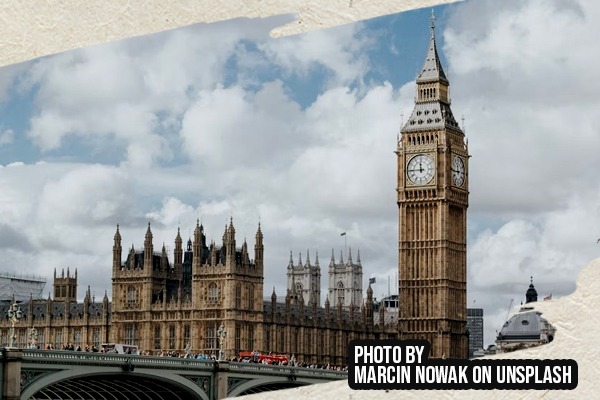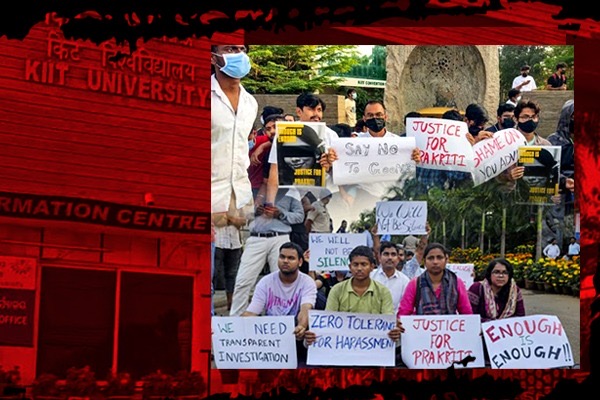The global gambling industry has transformed into a colossal $1.1 trillion entity. This industry exploits human psychology, bends rules, and disregards societal welfare solely for profit. Behind this shadowy enterprise stands an invisible mastermind: BlackRock, the world’s largest asset management company. While publicly championing ethical investment, BlackRock extracts immense profits from addiction. This story is not just about one industry, but also about the powerful institutions that fuel it—an industry fundamentally built upon addiction. It thrives not merely on financial greed, but on the systematic exploitation of human weakness.
BlackRock: The Invisible Emperor of Gambling
BlackRock’s influence within the global gambling network is remarkably vast. The company has invested $4.3 billion in Flutter Entertainment (which owns platforms like FanDuel and PokerStars), securing a 7.2% stake. Similarly, it holds $1.8 billion (6.8%) in DraftKings, $2.1 billion (9.5%) in MGM Resorts, and $1.5 billion (8.1%) in Caesars Entertainment. Altogether, BlackRock’s investment in this gambling empire amounts to nearly $11.3 billion. The contradiction is glaring: while BlackRock advocates for regulations under the banner of “responsible gambling,” it simultaneously engages in massive lobbying against laws that threaten its profits. Its ESG (Environmental, Social, Governance) principles present a facade of morality, yet its colossal earnings stem from industries that generate addiction, suicides, and financial ruin. In India alone, gambling-related suicides exceed 1,200 every year. Researchers have exposed this duplicity: the organization ShareAction has rated BlackRock’s gambling investments as high-risk.
BlackRock’s double standards are evident in its actions. On one hand, it announces lofty ideals of promoting “ethical AI,” yet on the other, it supports AI-driven systems that amplify addiction, exploiting vulnerable players. It speaks of transparency, yet invests in shady jurisdictions like Curaçao that encourage money laundering. It praises mental health, yet profits from platforms that destroy it by fueling addiction, thereby overburdening public health systems. Each of these contradictions is a clear symbol of its dual nature.
Unethical Strategies: How Gambling Companies Exploit Society
The policies of gambling companies are deeply predatory and exploitative. They manipulate psychology to trap people. Predatory marketing is their central weapon, using celebrities to lure youth. For example, Barstool Sports (owned by Penn National Gaming) directly targets the 18–35 age group. Astonishingly, 67% of its users are under 30, and 27% are high school students. Sports broadcasting is misused to promote gambling: in matches like those of the XFL, betting tips are inserted into live commentary, encouraging spectators to gamble. Offers like “free bets” create illusions, dragging people deeper into the cycle of addiction. A chilling example comes from the UK, where an addicted gambler, even after self-excluding from a platform, received 1,300 promotional emails and lost £11,000 in a single day as a result.
Data exploitation and algorithms are another weapon of this industry. Gambling platforms harvest user data to push them into wagering more. By sharing data with social media giants like Meta/Facebook, platforms identify so-called “high-value” users (i.e., addicts) and target them aggressively. AI-driven addiction represents a new threat. Professor Nasim Binesh of the University of Florida explains: “Profit-maximizing AI systems identify addiction-prone players and specifically target them.” The UK High Court has condemned such malpractice, following revelations that Sky Bet shared the data of users over 18 with third-party companies.
Avoiding regulations and manipulating politics is the third defining trait of the gambling industry. Companies operate in offshore havens to stay beyond regulators’ reach. For instance, 1xBet (banned in the UK) runs out of Malta and Curaçao, enabling over $50 billion in money laundering. Heavy lobbying assaults form their second tactic: DraftKings and FanDuel alone spent more than $50 million on lobbying since 2020. In the UK, one MP was revealed to have received over £200,000 as “consultancy fees.” The third ploy is tax avoidance: companies registered in low-tax regions like Malta or Gibraltar pay only about 15% tax. Even giants like Flutter Entertainment paid only $2.1 billion in taxes, negligible compared to their massive revenues.
Globally, gambling is deeply tied to political influence. In the USA, Sheldon Adelson of Las Vegas Sands donated over $500 million to the GOP, contributing to the failure of an online gambling ban. In the UK, the Coates family of Bet365 gave over £500,000 to the Conservative Party, leading to deliberate delays in gambling expenditure investigations. In the Philippines, Enrique Razon of Bloomberry Resorts has been accused of paying POGO (Philippine Offshore Gaming Operator) kickbacks, protecting gambling hubs teeming with criminal activity. In Australia, Crown Resorts donated to the Liberal Party, stalling reforms like the introduction of a “cashless gambling card.”
The Human Cost: Addiction, Debt, and Death
Behind the dazzling advertisements and glamorous settings lies a grim human reality. In India, gambling is fueling an epidemic of suicides. Online cricket betting and rummy apps alone account for over 1,200 suicides annually, the majority involving youth aged 18–25. One tragic case is that of a Chennai engineer who took his life after losing ₹25 lakh ($30,000) to gambling. The dangers of AI add a new dimension: though AI can detect signs of addiction, companies use that knowledge not to prevent harm but to increase a player’s “lifetime value”—pushing them to spend more.
Institutional exploitation is another disturbing aspect. Many US universities have partnered with companies like Barstool Sports, while the NCAA (National Collegiate Athletic Association) recorded over 100 suspicious corruption cases in 2024 alone, where players were allegedly bribed to gamble. This points to an institutional culture that enables gambling.
Online gambling poses severe, multifaceted health risks. The WHO classifies gambling disorder (ICD-11: 6C50) as a mental health condition, with online users facing addiction rates 2–3 times higher than traditional gamblers due to 24/7 access and immersive design. Mental health impacts include high rates of depression/anxiety (50–60% of cases), substance abuse (40–60%), and a suicide attempt rate 4 times higher than the general population. Socially, gambling disorder devastates relationships (2–3× higher divorce rates), triggers job loss (30–40% of severe cases), and increases crime (25–35% commit offenses to fund gambling).
The WHO deems this a global public health threat, advocating for advertising bans, spending limits, mental health screening, and therapies like CBT. Digital tactics (e.g., “near-miss” algorithms, gamification) intensify risks, demanding urgent regulatory intervention.
The Road to Accountability: Regulation, Litigation, and Ethics
Signs of resistance against this unethical empire are beginning to emerge. One path is through data privacy lawsuits. In the UK, Sky Bet is facing litigation for misuse of user data. Another path is AI audits: international bodies are now drafting rules for algorithmic transparency, enabling scrutiny of how these systems drive addiction. A third path lies in tax reforms: the US state of Maryland raised its gambling tax rate from 15% to 20%, with the extra revenue directed to addiction recovery centers. A fourth path is advertising restrictions: following Australia, the UK has now banned gambling advertisements during live sports broadcasts. These measures have been possible due to rising social pressure and growing global recognition of gambling’s destructive consequences.
The Need to Break the System’s Web
The gambling industry, a $1.1 trillion behemoth, did not grow simply out of entertainment or economic dynamism. It is fundamentally built on addiction, regulatory loopholes, and the financial backing of powerful institutions like BlackRock. Real change requires multi-level action. The first step must be divestment—institutions like BlackRock must pull out of addiction-driven profiteering. The second necessity is algorithmic transparency—independent audits of AI systems must be mandatory. The third is a ban on data targeting—ads directed at identified addicts must be outlawed. The fourth is to end political influence—severe restrictions on gambling lobbying and a ban on political donations from the industry must be enforced.
This is a moral wager for society: will we allow companies that profit from despair to thrive, or will we enact rules that prioritize human dignity and life? On this hangs everything—the future of countless families, the health of the younger generation, and the moral foundation of society. Curbing this monstrous gambling empire is not merely a matter of regulation—it is a matter of protecting fundamental human values.
Case Of India, BCCI & Dream11 – The Unholy Combine : Gambling Shadows on the Sanctity of Indian Cricket
The Board of Control for Cricket in India’s (BCCI) sponsorship agreement with Dream11 highlights a sharp contradiction with India’s anti-gambling laws and ethical values. Since 2020, this fantasy sports betting platform has been the official sponsor of the IPL, at a time when more than 1,200 suicides annually in India are linked to gambling, with over 80% of the victims being youth aged 15–35. Platforms like Dream11 cross annual revenues of ₹2,800 crore, 30% of which comes from Indian cricket viewers. This financial gain comes at a human cost: the case of an engineer from Chennai who committed suicide after losing ₹25 lakh in gambling illustrates just one facet of the problem.
The Global Web of the Grey Market: Cyprus Connection and Regulatory Loopholes
“Grey Market” operators in the global gambling industry use offshore havens to evade regulation. Companies like 1xBet, operating from Cyprus, are prime examples. Founded by Russian fugitives facing fraud and illegal gambling charges in their own country, this company misuses European Union legal provisions by obtaining licenses via Wagerfair SA in Spain. Its Valencia office is nothing more than a “mailbox,” yet it enables entry into the global banking system and facilitates over $50 billion in money laundering. Global regulatory bodies like those in Curaçao further fuel this malpractice by issuing “white-label” e-gaming licenses for just €18,000 annually. Based on such licenses, 529 sub-licensee companies operate illegally worldwide.
Note: Tactics of Grey Market Operators
- VPN Circumvention: Using Virtual Private Networks to bypass geographical barriers.
- White-label Agents: Concealing owner identities through intermediaries like TGP Europe.
- Cryptocurrency Transactions: Using cryptocurrency to preserve secrecy in dealings.
Political Lobbying: The ₹1,380 Crore Electoral Bonds Game
Future Gaming and Hotel Services Pvt. Ltd., based in Coimbatore, is the most alarming example of political influence from the gambling industry. This company donated ₹1,368 crore through electoral bonds, the majority going to the BJP. This amount is six times the company’s annual profit, proving its close nexus with political parties. Its founder, Santiago Martin—known as the “Lottery King of India”—had properties worth ₹250 crore seized by the Enforcement Directorate in 2019 and ₹409.92 crore seized in 2022. Despite this, Future Gaming continued donating to political parties, exposing the gambling industry’s influence on India’s political system.
GST Dispute: The Legal Battle in the Supreme Court
The online gambling industry in India, with its global syndicate, is currently fighting massive GST demands from the Government of India (GOI) in the Supreme Court. According to a 2023 central notification, 28% GST was imposed on the full face value of bets. Companies like Gameskraft face demands of ₹21,000 crore, while the entire industry faces claims of over ₹1.5 lakh crore, several times its annual revenue. The industry argues that GST should be applied only on the “actual transaction value” (their commission), not on the full face value of bets. This is a strategy to bring specific betting & gambling companies onto a level playing field and potentially make the government a partner in their revenue. This issue might also be part of the agenda in the Indo-US trade deal, as many US-based gambling and betting companies are in Trump’s lobby.
States like Karnataka passed stringent anti-gambling orders, but these were struck down by their High Courts, which classified gambling and betting as a “Game of Skill.” Tamil Nadu’s Gaming and Police Law (Amendment) Ordinance, 2020 sought to classify online gaming platforms as gambling, but the industry challenged it legally.
Tamil Nadu’s Model: Political Struggle Against Gambling
Tamil Nadu has been at the forefront of anti-gambling policies. In 2021, the state banned online rummy and fantasy sports, a move legally challenged by industry groups. The state government appealed to the Supreme Court. With the anti-gambling act framed in 2022, the Tamil Nadu Government prosecuted influencers, celebrities, and gambling and betting companies. This policy was framed as part of the state’s constitutional responsibility to fight “economic impoverishment and criminal activities” caused by gambling. Tamil Nadu’s initiative could serve as a model for other states—Telangana, Andhra Pradesh, and Kerala—which are attempting similar measures.
BCCI’s Ethical Responsibility
The India–UK CETA agreement has paved the way for global gambling companies to enter the Indian market. Most betting (85%) is on cricket. In this situation, the BCCI has abandoned its ethical responsibility and is instead serving the betting business. Jay Shah, who is the son of Home Minister Amit Shah, provides cover for Dream11’s unethical operations. Severing the BCCI’s sponsorship relationship with Dream11 is not just a symbolic step but essential to protect the integrity of cricket. The BCCI must immediately end all business relations with Dream11.
The Union Government must frame a stringent act to ban gambling and betting in India. It should also include awareness of gambling risks in the curriculum of the National Cricket Academy and all universities.
The ₹1,380 crore political donations by Future Gaming reveal the gambling lobby’s influence. Tamil Nadu shows a strategic path forward. Cricket is India’s most popular game. If this very passion spreads addiction, the moral foundation of society collapses. Students and youth must agitate to force the BCCI and Union Government to act. Youth must take up this fight because everything depends on it—the future of the young generation, the financial stability of families, and the cultural sanctity of cricket.
Beyond Bans: Will the New Legislation Deliver?
The Union Government’s recent move to ban online gaming appears, at first glance, as a decisive step against a predatory industry. But history teaches us that bans without teeth often serve as little more than political theatre. Grey market operators thrive precisely in the absence of strong, enforceable regulations. Platforms like 1xBet and Dream11 have already shown how easily they exploit loopholes, offshore havens, and celebrity endorsements to evade accountability. Without dismantling this nexus, prohibition risks becoming a façade—pushing gambling deeper underground while addiction and debt continue to claim young lives.
For any legislation to be productive, it must strike at the core of the industry’s power. This means algorithmic transparency—forcing companies to reveal how their AI systems engineer addiction. It means a ban on targeted advertising and political donations from gambling firms. It means strict prosecution of celebrities and institutions like the BCCI that lend legitimacy to this empire of addiction. And it must integrate public health, with awareness campaigns and treatment programs as central pillars.
The real test is not whether India can announce another ban, but whether it can resist corporate lobbying and political capture. Anything less will be surrender disguised as reform.








